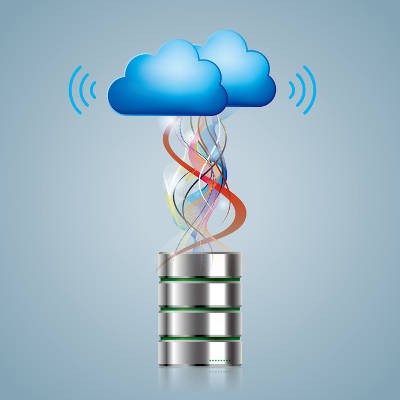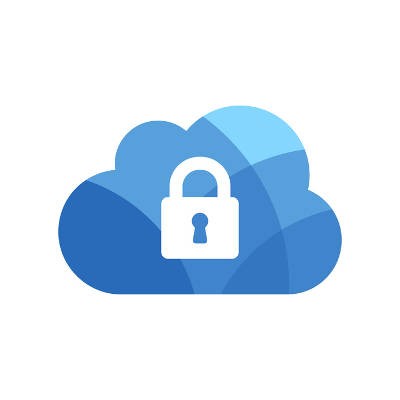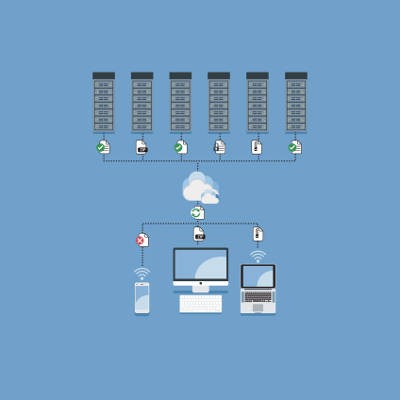Cloud computing has been one of the most utilized tools for business in 2020. The COVID-19 pandemic has made it crucial for businesses to give remote access to tools and one effective way to make that happen was to look to the cloud. This has expanded an already booming market and presents businesses of all sizes with the opportunity to get the computing they need without huge upfront costs. Today, we’ll take a look at the cloud computing market and how you can leverage hosted computing solutions to improve your business.
Telesys Voice and Data Blog
Businesses have many problems they need to solve. With technology, the process typically starts with identifying a problem, researching solutions, and finding one that will successfully work to solve the problem. Traditionally, when dealing with technology, a company would procure the hardware and hire technicians to implement the solution and deploy the services needed. If they had to borrow money to do it, they would because the profits would presumably be more than the payments even with banks tacking on interest.
As the COVID-19 pandemic continues around us, many businesses have found themselves seriously reconsidering their business’ infrastructure, pondering the switch from onsite hardware to cloud-based options. While these hosted options can offer businesses relief from a costly hardware refresh, it is important to acknowledge that cloud computing may not be a one-size-fits-all panacea. Let’s take a closer look.
The cloud has proven to be an extremely useful tool for modern businesses. Not only does it provide anywhere-anytime access to applications, processing, storage, and more, it also delivers those products as a service, allowing an organization--or an individual--to budget for recurring costs rather than major upfront ones. This provides your organization with functional, supported, and secure computing environments that eliminate a lot of the support costs that traditional computing environments require. It sounds like a perfect scenario for small and large businesses alike, but things aren’t always what they seem, as a lot of cloud users have found that they have incurred several hidden costs by using cloud platforms. Today, we take a look at these hidden costs.
The key to running a successful small business is keeping costs down and production/service delivery efficient. This is easier said than done. Some tools have been developed to boost productivity and efficiency while others are built to eliminate downtime and manage risk. Let’s take a look at some of the technology your business should be using.
Any business’ IT is reliant on that business’ computing infrastructure, which makes the infrastructure an important topic for every business to consider. As we progress into 2018, it is important to stay up-to-date and considerate of each new development and trend.
Regardless of where it is kept, your data’s security is of paramount importance. However, this doesn’t mean that the decision between leveraging the cloud or an on-premise server for your data storage needs isn’t an important one. For this week’s tip, we’ll weigh these options against each other to help you establish which is the better option for your business’ needs.
Data management is exceptionally important for any business, and companies that use the cloud in any sort of capacity need to be considerably more cautious in the way that it’s managed than a business that only hosts data on an internal server or network. The cloud makes things more complicated at times, but if managed correctly, it can lead to unprecedented efficiency for your organization.
The cloud has revolutionized the way that businesses approach computing. Companies can implement solutions in a flexible and accessible model that makes it much easier to take advantage of technology solutions. Yet, you should know that not all clouds are the same, and you can’t treat them as such. Here are four questions that you need to ask your cloud provider about the services that you’ve been rendered.
Cloud services have proven to be extraordinarily useful for businesses of all types. With an immense amount of options to choose from, businesses can get anything from AI to Windows in the cloud. With so many services available, sometimes businesses will pay for computing resources that they don’t use, cutting into their available operational capital. Today, we take a look at how businesses throw capital away by not keeping a close eye on their cloud-based resources.
Cloud-based databases are valuable for businesses on plenty of levels, but when you consider how much risk you expose your organization to by using a public cloud over a private solution, you suddenly start to realize that the ramifications could be far beyond repair. Compared to the public cloud, a private solution presents a greater opportunity for security, flexibility, and customization.
The cloud is the perfect outlet for businesses to improve productivity, but the degree to which this statement is true depends on the business and how much it leverages the cloud. If you’re not sure if your business can be utilizing the cloud in a more efficient way, perhaps we can help you make this determination and improve the way you take advantage of this technology.
These days, many businesses turn to hosted solutions to take advantage of services that they haven’t been able to use in the past. Whether it’s because they don’t have the staff to properly look after the services or they don’t have the in-house infrastructure for it, organizations continue to take advantage of hosted solutions to varying degrees. We’ll walk you through your options for whether you should build, rent, or buy your hosted solutions to best fit your business’ needs.
The cloud helps many organizations expand their territories beyond simply the physical workplace. Employees can now access data and applications on any connected device. Your office can benefit considerably from cloud-based resources, with email in particular being a standout solution for the cloud.
As technologies emerge and trends change, organizations face massive paradigm shifts involving the tools and methods they use to conduct business. Right now, we’re in the middle of one of the most significant shifts in decades; more and more businesses are relying on cloud computing.
The traditional computing structure has been under siege by cloud computing for the past several years. More businesses than ever are seeing the value in cloud-hosted applications and infrastructure, and while that may not be a huge surprise, the perceptions that the cloud can solve any of your organizational computing problems depend largely on the needs of that endeavor. Today, we will take a look at successful small business cloud strategies and tell you why they find success.
Cloud for File Sharing
File sharing is the number one reason any small business moves some of their computing to the cloud. Cooperation is essential to small business success, and a cloud-based file sharing solution gives any small business near-ubiquitous access to data. This access allows work to be completed from multiple locations, giving the small businesses great benefit as it makes them competitive with larger organizations who have more people and more resources. This allows small businesses to take charge over more of the market than ever before, increasing revenues and promoting business growth.
Cloud for Communications
Another avenue a lot of small businesses are taking is using cloud-hosted communications services. Like many other cloud-hosted applications, it can save a company quite a bit of money switching to a VoIP system or public-cloud-hosted email solution. What about functionality? Cloud-hosted VoIP is actually a great solution for any organization looking for a feature-rich phone platform and wants to do away with their traditional phone bill. With feature-rich packages, any organization can get the customized VoIP solution that fits in their budget and provides them options for messaging, conferencing, and enterprise-level phone services.
Hosted email can provide a lot of benefits, as well. It eliminates the costs associated with the hosting and management of the email server, while providing users enhanced functionality that includes added message encryption, instant messaging integration, and much more.
Cloud for Storage
When you think about cloud storage, the first thing that must come to mind are the hundreds of gigabytes that many cloud storage providers just give away to anyone that signs up for their services; and the affordable options individual users can explore to gain a substantial amount of cloud storage space. The issue for small businesses is that public cloud hosted storage facilities don’t provide them the control over their data that most of them would like. This is why you see organizations building their own private cloud inhouse or collocate it to a data center where they have full control over the data.
The benefits of cloud storage are that data is accessible from anywhere, giving a business increased mobility that can definitely benefit them over time. The perceived lack of security that some organizations point to is largely in how their employees utilize the cloud interface, not the cloud environment itself, as it is likely highly encrypted. Many organizations have begun to use cloud storage interfaces for redundancy, making cloud-based backup and recovery solutions a fairly attractive option to secure backup files.
Cloud for Security
Nowadays, security is the top line-item for about any IT administrator. Since there is an abundance of threats every organization has to be cognizant of, it only makes sense that cybersecurity firms start offering their comprehensive network and cybersecurity services. In utilizing a SEaaS system IT administrators can leverage some of today’s most potent security solutions from the Internet. This provides a full cache of services to IT administrators.
Once you ascertain what threats you are up against, utilizing a Security as a service software will allow you to remote into any machine and set up high-end security services that can be customized to your organization's needs. These security services go a long way toward keeping software and hardware up to date with latest security permissions. There are options for anti-malware, content filtering, spam blocking, and more, making cloud security a good investment for the organization that depends on the Internet for their business.
The cloud has expanded to include almost any type of computing you can think of. For your business, it can be the answer to all questions your risk assessments have presented. For more information about hosted solutions and utility computing, call the IT professionals at Telesys Voice and Data today at (800) 588-4430.
One of the inevitabilities of working with the cloud is that you have to face a tough question; what kind of compliance requirements are there for cloud-based data? If you’re storing data for your business in a cloud-based environment, it becomes your responsibility to know where and how this data is stored--particularly if you’re not the one doing the actual cloud hosting. How do you maintain compliance when you seemingly have so little control over how your computing platform is managed and maintained?
It all starts by asking your cloud provider specific questions about how compliance is handled, as well as what terms are written into the agreement that you have with them. We’ll go over some of the details that you’ll need to address.
The Cloud Can Be Tampered With
Naturally, one of the major concerns that businesses might have about cloud compliance is the idea of how this data is being managed, maintained, stored, and transferred. This also means that it can be changed or intercepted while it is in transit. Therefore, the key concern is that data could be changed without the user’s knowledge. Those who are concerned about the legal ramifications of this should focus on learning who is hosting the data, how it is being maintained, how it is being transported from the hosting site to your infrastructure, and who can see this data. This line is further blurred by the differences between the public and private cloud. In other words, is your data being stored alongside someone else’s data? Are there partitions put into place that limit access based on role and organization? The question of security is of the utmost importance and will be a major point that you’ll need to hit for compliance’s sake.
What Can You Do?
Using the above statements as a springboard, you’ll need to think about how your business plans on securing cloud-based data and ensuring its compliance with any regulations your organization is beholden to. You start by first assessing just how deep into cloud computing your organization actually is. Depending on the importance of certain data, you may decide that a combination of private and public cloud platforms present the ideal solution. For sensitive information, an internal network or private cloud is ideal, while less sensitive or important data is stored elsewhere.
Next, you’ll need to consider who is managing this data, and what kind of agreements you will have to make to guarantee its safety. Is it being managed by an in-house department or a third party? If it’s a third party, for example, you’ll need to determine responsibilities and consequences of failing to adhere to compliance guidelines. It’s also important that you know what types of security and backup solutions are being used to protect your assets.
Since your organizational reputation and integrity is on the line, your best bet is to find a way to design, deploy, and support a private cloud solution onsite for any data that could possibly be subject to regulatory compliance. Otherwise, you may find that any cloud-hosting company or colocation service won’t have your immediate needs top of mind.
Telesys Voice and Data can help your business ensure security of your cloud solutions. To learn more, reach out to us at (800) 588-4430.
Your business relies on technology to ensure operations proceed smoothly, but the way that it’s managed can have a major impact on the way your company functions. Think about it like this: if you have software solutions hosted on different computers, but not in any centralized location, only those computers will be able to use these solutions--potentially hampering your staff’s ability to be productive. How can you make sure that this doesn’t become a major problem?
Centralizing your company’s IT assets should be a priority, as it promotes accessibility and flexibility for your entire company. When you have your business network assets centralized in one location, all sorts of possibilities open up. For example, you don’t have to worry about data being inaccessible at any point, which can often be a major hurdle.
For a lot of businesses, centralization means hosting company assets in a place where every single employee can access what they need to do their job. In essence, it means utilizing an innovative technology plan led by cloud computing. Cloud computing is the act of making assets available through the virtual environment known as the cloud. It can be something as simple as email access, or it can be something as complex as infrastructure hosting. Either way, the point that we’re trying to get across is that it’s a centralized location for important information.
There are many important factors to keep in mind that stem from centralizing your business’ IT. Here are just a few of them.
- Near-constant access: Hosting applications and programs in your cloud solution allows for access to just about anything that a business might need to remain active. Since access is near-constant, your employees will be able to work remotely if needed, allowing them to either catch up on missed work or get ahead from anywhere there is an Internet connection.
- User-based delegation: If your employees have access to all information on your network, you’re managing a considerable amount of risk. You can limit how much damage is done through limiting data access based on user roles. For example, the average employee doesn’t need access to personally identifiable information, like your HR department would.
- Security: Since most of your assets are located in one place, they will be easier to protect and secure in the long run. Of course, this type of security also needs to extend to devices that access this information. With the right amount of control over security, your business can fully take advantage of centralized IT assets.
We’d like to round this out by suggesting a centralized way of managing your IT assets as well, and that’s by outsourcing the responsibility to Telesys Voice and Data. We can remotely monitor and maintain your infrastructure without the need for an on-site visit, thus redirecting valuable capital to projects that can help you build revenue. To learn more, reach out to us at (800) 588-4430.
Cloud computing is one of the best ways that your business can compete with larger enterprises. Today, you can adopt the cloud and take advantage of countless services, but are you doing so yet? If not, we’ll help walk you through some of the best ways that your organization can leverage the cloud.
Of course, the type of cloud you will need depends on several factors, including data control, maintenance responsibility, and the complexity of your operations as a whole. You will generally be choosing from a public, private, and hybrid cloud for your business’ needs. With each of these comes new benefits and challenges to overcome, however, so you’ll want to consider all options before going all-in on a solution.
Public Cloud
If your business has a limited budget, the public cloud may be an ideal solution for you. The public cloud allows users to take advantage of the cloud without investing in on-site cloud infrastructure. You can use all of the great parts of the cloud, including storage, access to cloud-based applications or services, and communication solutions. The public cloud offers a great starting point for businesses that want to utilize the flexible cost the cloud offers, and don’t have the assets available to invest in anything more complicated. Some of the services provided through public cloud solutions include Google’s G Suite and Microsoft Office 365. Yet, it’s not all rainbows and sunshine for the public cloud, as the lack of customization and control may deter some organizations.
Private Cloud
Where the public cloud provides general catch-all solutions for businesses that don’t want to manage or maintain their own infrastructures, the private cloud offers hosted or on-site solutions that need to be maintained by an IT department of some kind. Basically, you need to have the infrastructure to manage a cloud system, as well as a team that can provide maintenance for it (unless you have arranged to outsource this--more on that later). Private clouds are in high demand because they allow businesses to easily customize their solutions to suit their needs--particularly in regard to network security and scope of services offered. Private clouds are best for businesses that want to maximize control over their data and know exactly what they want out of the cloud.
Hybrid Cloud
If neither the public nor private cloud are attractive to your organization, then perhaps a mixture of the two will provide the best results. A hybrid cloud takes all of the benefits of a private cloud and combines them with public cloud offerings thereby allowing for a customizable and flexible solution that is built specifically for your business’ needs.
The best part of this is that you can have an outsourced provider like Telesys Voice and Data host your cloud infrastructure so that you don’t have to. It’s the best way to take advantage of the best of both worlds. To learn more, reach out to us at (800) 588-4430.
If you’re like most businesses, you almost certainly rely on email on a daily basis. However, if your email is hosted on an in-house server, you are becoming less like many businesses, as they are moving their solutions to the cloud. Here’s why you should follow suit and make the switch yourself.
Mobile? Grab this Article!
Tag Cloud




















